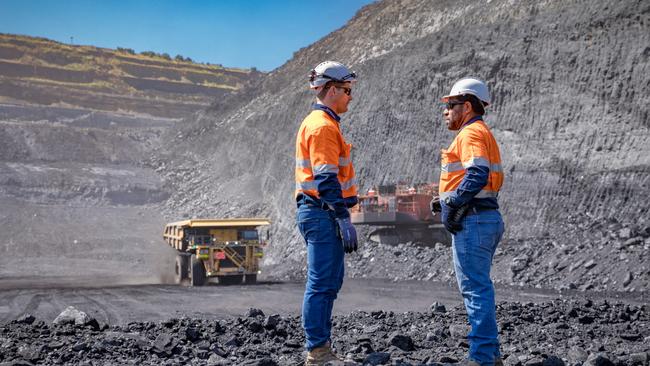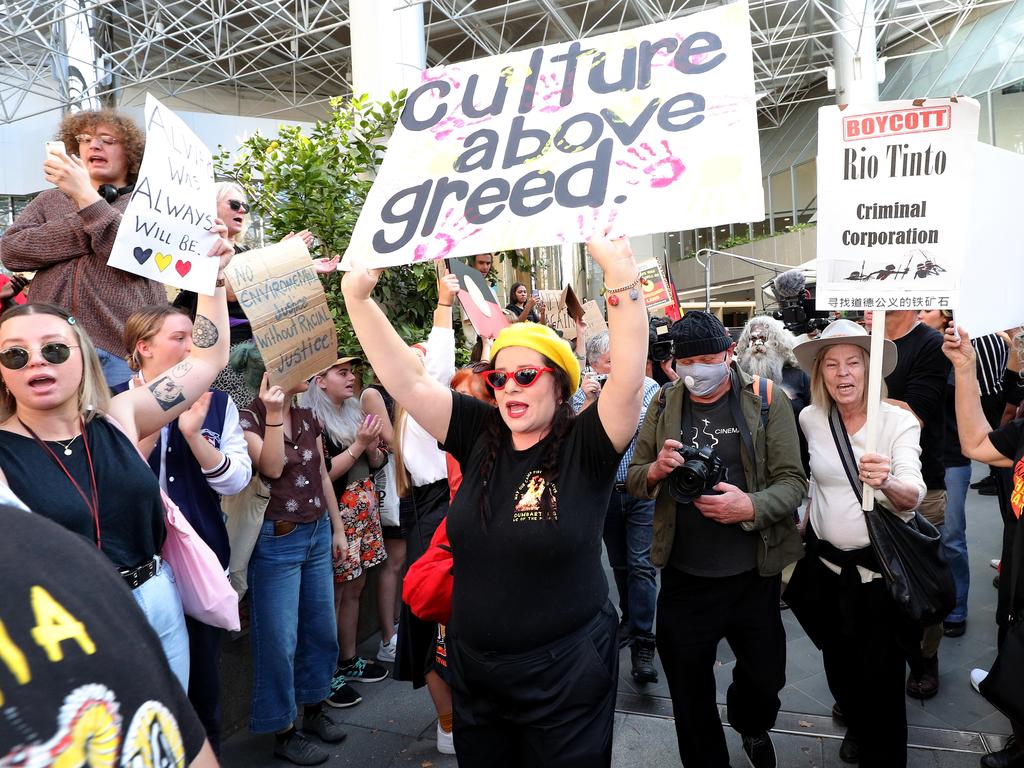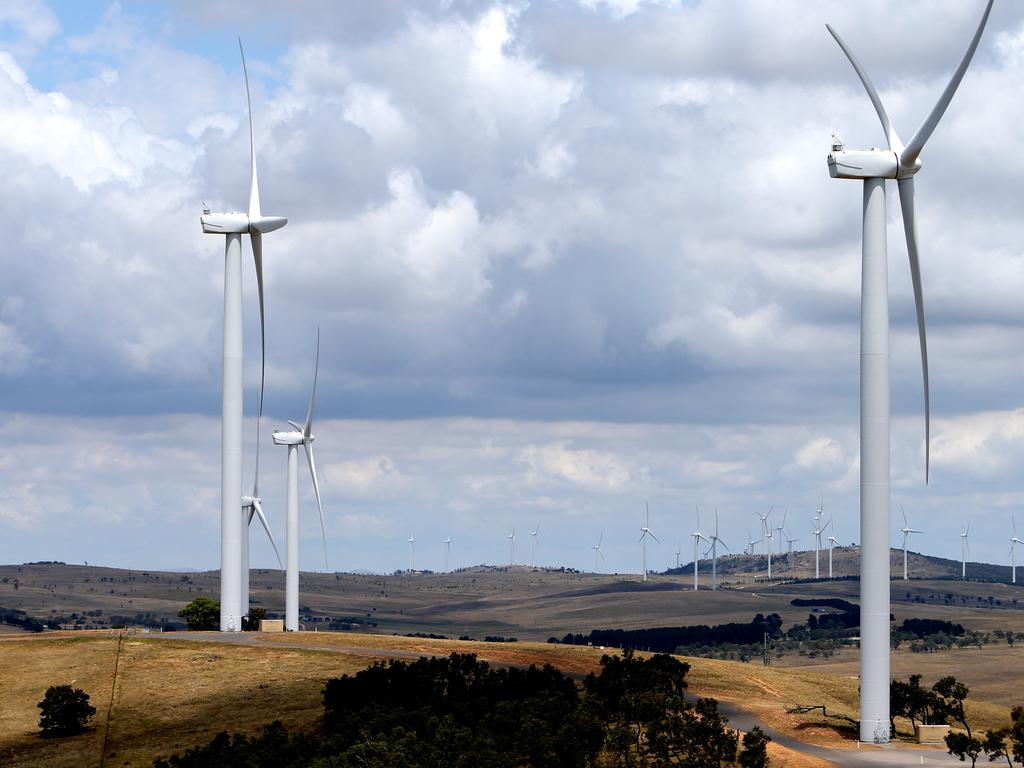Worley mulls footing power bill for staff working from home
Contracting giant Worley says it’s been upfront with its 46,000 staff that working life won’t go back to normal.

Corporate travel budgets sliced in half, office space slashed and home electricity bills reimbursed.
Welcome to one blueprint for corporate Australia, post- COVID-19.
The Sydney-based contracting giant Worley says it’s been upfront with its 46,000 staff that life won’t go back to normal as pandemic restrictions begin to ease across its global operations. About half of its workers will never return to full-time office roles. Instead, an app will be rolled out allowing those who need a corporate fix to search for desk spaces. Smaller offices housing perhaps a dozen staff will be abolished, with WeWork coworking spaces offered instead.
The days of international flights, hotels and hire cars also appear numbered.
The costs of Worley’s pre-COVID corporate travel bill “would make your eyes water”, chief executive Chris Ashton told The Australian.
“In a post-COVID world when things normalise, I expect a 50 per cent cut to corporate travel.
“There’s a big amount of travel for internal meetings and what we’ve clearly demonstrated throughout the COVID environment is that we don’t need to travel as much.
“Yes, there’s going to be times when we’re going to have to get on a plane and do something face to face, but air travel is expected to pare back significantly.”
Worley’s senior leadership team have supported cutting back on endless work travel assignments while the contractor’s rank and file have yet to be asked for feedback.
“At the moment it’s so far from their minds that it’s not a conversation topic,” Mr Ashton said.
Over a quarter of the $275m in planned cost cuts by the end of 2021 will come from reducing the size of offices.
“This is about looking at offices and saying if we have 35 per cent of our people working from home permanently and 15 per cent flexible, what does that mean for our office space,” Mr Ashton said. “Well it means you don’t need as much.”
Worley was not alone in rethinking the way it operates.
“I’ve been talking to other CEOs within and outside our industry and let me tell you we’re all thinking the same way.”
Worley will cut the number of offices and expects to make 60 per cent savings in ‘‘high-cost cities’’ with less space needed to house staff.
“There’s going to be a portion of people who work in the office permanently. There will be a bunch of people who will now work full-time remotely and there will be a bunch of people who will work two or three days one week and maybe two days the next,” Mr Ashton said.
“They will flex. But there will always be the option to bring people together into the office. I don’t think the opportunity to innovate is going to be lost but the way we innovate will certainly change.”
Mr Ashton said it would ultimately be cheaper having more staff at home.
“After direct costs of staff, the second biggest cost in the company is property,” he said.
Worley would ensure staff were correctly set up at home. Costs could be covered for everything from ergonomic chairs to home power bills.
“What does it mean for them to get a reliable internet line, do you need to provide them with an ergonomically comfortable chair? So there may be some costs, but it’s not as much as it would be if they were working from the office — that’s for sure,” Mr Ashton said.
Utility bills could be reimbursed, although some staff would also be saving from cutting out costly commuting to and from the workplace.
“We’re looking at all that and it’s got to be fair and it’s got to be sensible. Equally those people are not commuting and are not spending an hour each way to work and money on transport costs. We have many people in many parts of the world who are travelling two hours each way to get to work,” Mr Ashton said.
“So now they won’t be commuting, they don’t have to have that second car and they’re not spending money on train passes. So it’s give and take. It’s got to be a balance and ultimately it’s got to be fair.”
Worley on Wednesday said it had slashed nearly 2000 jobs due to the COVID-19 economic slowdown and committed to net zero emissions by 2030, including cutting air travel.
The contractor has cut 1900 project-based positions since March 31, taking total job losses to nearly 5000 so far this year after it eliminated a further 3000 roles in the first three months of 2020, reflecting falls in lower-margin construction activities. It now employs 54,100 people, down from 59,000 at January 31.
Salaries have previously been frozen and non-billable hiring halted with staff cuts, redeployment, early retirement, job sharing and furloughs all being considered to manage the downturn and oil price crash which had seen customers defer projects.
“We’ve not seen anything like this before,” Mr Ashton told the company’s investor briefing. “Going back to 2014, when there was the last crash, that was really focused on oil demand and consumption. If you look at the oil price crash here, it’s a much broader societal impact. There is nothing I can compare it to.”
Worley is working on an energy transitions ‘‘roadmap’’ for reaching net zero emissions by 2030 and will also work out a strategy in the next financial year for cutting Scope 3 emissions.
“We will help our customers reduce their Scope emissions by helping them redesign or build projects that manufacture a product output that when their consumers use it will reduce their emissions,” Mr Ashton said.






To join the conversation, please log in. Don't have an account? Register
Join the conversation, you are commenting as Logout